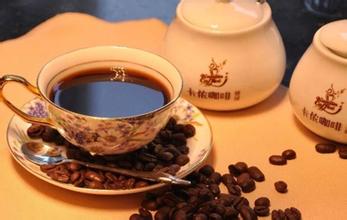Yunnan boutique coffee the latest news of Yunnan coffee
Yunnan arabica coffee, rubiaceae, coffee, planting area is mainly distributed in Lincang, Baoshan, Simao, Xishuangbanna, Dehong and other prefectures. Arabica coffee is native to Ethiopia or the Arabian Peninsula. Fujian, Guangdong, Hainan, Guangxi, Sichuan, Guizhou and Yunnan are cultivated. Arabica coffee is suitable for growing in the mountains of 800~1800 meters above sea level. If the altitude is too high, it tastes sour, and if it is too low, it tastes bitter. Arabica coffee is mostly planted in dry and hot valleys at an altitude of about 1100 meters, so the acidity is moderate, the aroma is rich and mellow. Many areas of Yunnan Province have unique environments suitable for the growth of Arabica coffee, and the Arabica coffee produced is of excellent quality.
Planting areas are mainly distributed in Lincang, Baoshan, Simao, Xishuangbanna, Dehong and other prefectures.
Baoshan Lujiangba average temperature of 21.5℃, up to 40.4℃, basically frost-free throughout the year, is recognized as the best coffee producing area. The Arabica coffee cultivated here is famous for its strong but not bitter, fragrant but not strong, well-proportioned grain facets, mellow fragrance and fruity flavor.
After inspecting Yunnan coffee planting and primary processing bases, experts from the International Coffee Organization evaluated Yunnan coffee as Colombia wet-processed Arabica coffee, which is the highest quality coffee in the world.

Important Notice :
前街咖啡 FrontStreet Coffee has moved to new addredd:
FrontStreet Coffee Address: 315,Donghua East Road,GuangZhou
Tel:020 38364473
- Prev

How to distinguish authentic Blue Mountain Coffee from genuine Blue Mountain Coffee
It is said that Blue Mountain is good, but Blue Mountain is really good. But are you sure you're drinking the real Blue Mountain? I dare say that more than 90% of the people who boast that they drink blue mountains are fake blue mountains. There is not no real thing in China, but it is very difficult to learn to pick a real one out of ten thousand kinds of fake goods. First, there is no sign in Blue Mountain, it depends on the name of the manor. The Blue Mountains is a region of Jamaica.
- Next

Ethiopian Fine Coffee Flavor characteristics of Ethiopian Coffee Yega Chefe Coffee
Ethiopian coffee beans grow in close to the natural environment, after years of planting under the same growth conditions, Ethiopian coffee beans have gradually adapted to the environment here. More than 60% of coffee beans are grown in forests or semi-forests. Large-scale coffee-growing villages account for about 35% of the country's total coffee production. Many of these are used.
Related
- Detailed explanation of Jadeite planting Land in Panamanian Jadeite Manor introduction to the grading system of Jadeite competitive bidding, Red bid, Green bid and Rose Summer
- Story of Coffee planting in Brenka region of Costa Rica Stonehenge Manor anaerobic heavy honey treatment of flavor mouth
- What's on the barrel of Blue Mountain Coffee beans?
- Can American coffee also pull flowers? How to use hot American style to pull out a good-looking pattern?
- Can you make a cold extract with coffee beans? What is the right proportion for cold-extracted coffee formula?
- Indonesian PWN Gold Mandrine Coffee Origin Features Flavor How to Chong? Mandolin coffee is American.
- A brief introduction to the flavor characteristics of Brazilian yellow bourbon coffee beans
- What is the effect of different water quality on the flavor of cold-extracted coffee? What kind of water is best for brewing coffee?
- Why do you think of Rose Summer whenever you mention Panamanian coffee?
- Introduction to the characteristics of authentic blue mountain coffee bean producing areas? What is the CIB Coffee Authority in Jamaica?

